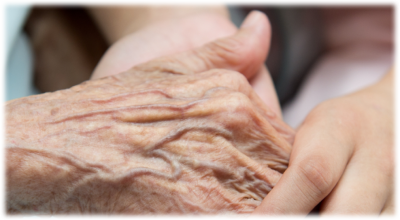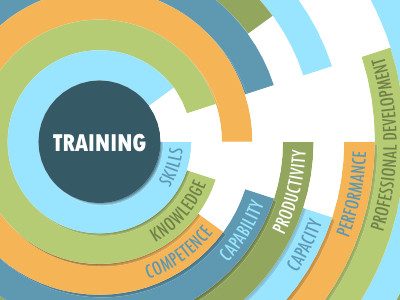 “Touching as a therapeutic event is not as simple as a mechanical procedure or a drug, because is, above all, an act of communication…the use of touch and physical closeness may be the most important way to communicate to acutely ill (and aged) persons that they are important as human beings…” – Ashley Montagu
“Touching as a therapeutic event is not as simple as a mechanical procedure or a drug, because is, above all, an act of communication…the use of touch and physical closeness may be the most important way to communicate to acutely ill (and aged) persons that they are important as human beings…” – Ashley Montagu
Touch is good medicine. Research supports the beneficial effects of skilled touch as a powerful, yet under-utilized means to address an urgent need: person-centered care for people with dementia.
Let’s look at the need. Our aging population is having a major impact on hospitals, long-term care companies, aging and regulatory services and hospice providers. Clinicians and front-line staff will serve more people over age 75 than any other age group and prevalence of dementia is being seen in every sector of senior services.
- About one-quarter of all older hospital patients are people with dementia
- People with dementia constitute about half of all nursing home and assisted-living facility residents
- An estimated 15 million family and friends in the U.S. provided care to a loved one with dementia in 2013
Touch deprivation leads to feelings of isolation, anxiety, poor trust in caregivers, insecurity and decreased sensory awareness. Older adults living with chronic illness, dementia and other conditions are especially receptive to touch. Unfortunately, they are the least likely to receive expressive human touch from health care providers and caregivers.
Touch stimulates the production of oxytocin, leading to feelings of safety, caring, trust and decreased anxiety. It’s been called the care and connection hormone. When your brain releases oxytocin, you feel good.
At the same time, cortisol is a hormone that increases when we are stressed. Studies show that cortisol level decrease after even five minutes of skilled touch.
Instrumental vs. Expressive Touch
Touch in caregiving is NOT the same. There are two basic kinds of touch that commonly occur during caregiving: Instrumental touch is necessary to perform a task or procedure such as transferring or bathing. Expressive Touch is offered spontaneously to show care, concern, reassurance, affection, and empathy. It has the power to affect our feelings about others, ourselves and the world we live in. The person receiving the touch feels validated and distress in the moment is eased.
Skilled Touch has a structure and method designed to achieve a desired clinical impact.
Compassionate Presence is both a personal quality and professional skill that can be learned and developed. With compassionate presence:
- you connect with individual rather than the disease
- you connect in the moment as it unfolds
- you accept the reality and current experience of the person you are serving
“The most important innovation in medicine to come in the next 10 years: the power of the human hand.” – Dr. Abraham Verghese
Expressive touch provides a feasible, effective tool to respond to behavioral expression in persons living with dementia; reduce stress for both care partners, and a means to calm, connect and comfort. With training, it is a powerful tool that is literally in the hands of those caring for our older adults.
Research supports positive changes in physical behavior, mood and expression, resistance to care, and reduced stress for both care partners, leading to greater staff satisfaction.
Skilled touch:
- alleviates aches and pains
- provides tactile and sensory stimulation
- induces a relaxation response
- supports psycho-social well-being
There is an urgent need to provide more effective and feasible tools to improve dementia care and reduce the use of psychotropic drugs.
We can transform care… it’s in our hands!
Pam Brandon is President/Founder of AGE-u-cate® Training Institute and worked with Ann Catlin, OTR, LMT in the development of the ground-breaking Compassionate Touch® program, used throughout the US, Australia and Canada to improve care for persons with dementia and end-of-life.
To learn more about the Compassionate Touch® program please visit http://www.AGEucate.com
 There is an urgent need to equip caregivers to better respond to and care for persons living with dementia. Traditional training models have focused on the number of classroom hours an individual must spend in training, assuming that a person who completes the required training hours is ready to work successfully with people living with dementia. The shift to competency-based training improves dementia care by focusing on mastery of tasks and tools that are learned.
There is an urgent need to equip caregivers to better respond to and care for persons living with dementia. Traditional training models have focused on the number of classroom hours an individual must spend in training, assuming that a person who completes the required training hours is ready to work successfully with people living with dementia. The shift to competency-based training improves dementia care by focusing on mastery of tasks and tools that are learned. I was privileged to speak yesterday to the Dallas Area Parkinson’s Society (DAPS) about how care partners can embrace wellness and joy. For persons living with Parkinson’s Disease and other neurological conditions, finding wellness and joy in everyday life can be challenging and elusive at best. I know this first-hand, as my mother lived with Parkinson’s Disease (PD). Speaking from experience as her partner in this journey, my words of wisdom for embracing wellness and joy encompassed some simple steps.
I was privileged to speak yesterday to the Dallas Area Parkinson’s Society (DAPS) about how care partners can embrace wellness and joy. For persons living with Parkinson’s Disease and other neurological conditions, finding wellness and joy in everyday life can be challenging and elusive at best. I know this first-hand, as my mother lived with Parkinson’s Disease (PD). Speaking from experience as her partner in this journey, my words of wisdom for embracing wellness and joy encompassed some simple steps. Call it awareness, attention, focus, presence, or vigilance. It’s proving to be a powerful and effective practice in coping with stress. Caregiving can easily top the charts on stress, especially for caregivers of elders with chronic illness and dementia. Mindfulness for caregivers means learning to live in the moment, accept the reality of a situation, and filter out distractions.
Call it awareness, attention, focus, presence, or vigilance. It’s proving to be a powerful and effective practice in coping with stress. Caregiving can easily top the charts on stress, especially for caregivers of elders with chronic illness and dementia. Mindfulness for caregivers means learning to live in the moment, accept the reality of a situation, and filter out distractions.